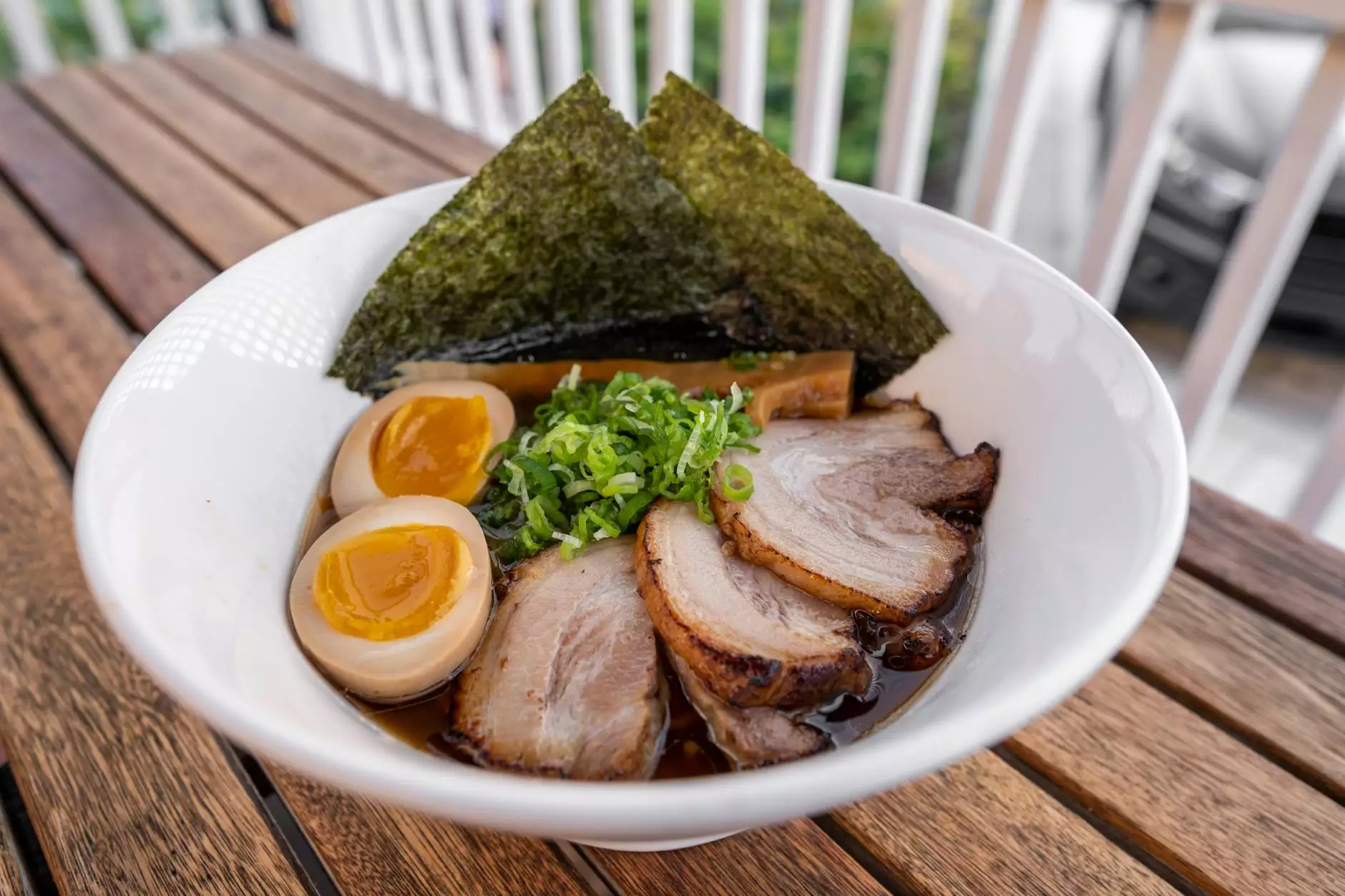The Versatility and Benefits of Wasabi Powder in Your Culinary Ventures

When it comes to enhancing flavors in Japanese cuisine, wasabi powder is a secret ingredient that many chefs, restaurant owners, and culinary enthusiasts treasure. This vibrant green powder is not just celebrated for its robust flavor but also for its numerous health benefits and versatile applications. In this comprehensive article, we will delve into the world of wasabi powder, exploring its uses in restaurants and sushi bars, its nutritional advantages, and creative ways to incorporate it into a variety of dishes.
What is Wasabi Powder?
Wasabi powder is made from the root of the wasabi plant (Wasabia japonica), which is native to Japan. Traditionally, the root is grated down to create a paste, but the powdered form has gained popularity due to its convenience and extended shelf life. It's often combined with water to create a spicy, flavorful paste that serves as a condiment for sushi, sashimi, and various other dishes.
The Cultural Significance of Wasabi in Japanese Cuisine
Wasabi has been a staple in Japanese cooking for centuries. Not only does it serve as a flavorful component of dishes, but it also carries cultural significance:
- Complementary Flavors: Wasabi enhances the flavors of raw fish, balancing the richness of the sashimi with its potent heat.
- Preservation: Traditionally, wasabi’s antimicrobial properties help preserve the freshness of seafood, making it a vital culinary tool in sushi preparation.
- Symbol of Hospitality: Serving wasabi with dishes is a gesture of welcome and respect in Japanese dining.
Health Benefits of Wasabi Powder
The benefits of wasabi powder extend beyond its flavor profile. It is packed with health advantages that are beneficial for everyone:
- Rich in Nutrients: Wasabi is high in fiber, vitamins (such as vitamin C), and minerals like potassium.
- Antimicrobial Properties: Wasabi contains compounds that may help to prevent bacterial growth, particularly in seafood dishes.
- Anti-Inflammatory Effects: Some studies suggest that wasabi may possess anti-inflammatory properties, aiding in reducing inflammation in the body.
- Antioxidant Potential: The unique compounds found in wasabi are considered to have antioxidant properties, which help combat free radicals and promote overall health.
How to Use Wasabi Powder in Your Kitchen
Apart from the traditional use of wasabi powder as a condiment, there are numerous ways to incorporate it into your dishes. Below are some creative ideas for chefs and home cooks alike:
1. Making Wasabi Paste
To create a flavorful wasabi paste, simply mix wasabi powder with cold water. The proportion of water can vary based on how spicy you want the paste to be:
1 tablespoon of wasabi powder 1 to 1.5 tablespoons of cold waterMix until it reaches your desired consistency. Allow it to sit for a few minutes for flavors to develop before serving.
2. Spice Up Soups and Broths
Adding a small amount of wasabi powder to miso soup or ramen broth can elevate the flavor profile significantly. Its heat complements the savory elements of the soup.
3. Enhance Marinades and Dressings
Incorporate wasabi powder into marinades for meat, seafood, or tofu. It can also be blended into salad dressings for a unique flavor twist. Try this basic vinaigrette recipe:
3 tablespoons olive oil 1 tablespoon rice vinegar 1 teaspoon wasabi powder Salt and pepper to taste4. Incorporate into Dips and Spreads
Add wasabi powder to cream cheese, yogurt, or mayonnaise to create bold dips or spreads for appetizers. This makes an excellent accompaniment for vegetable platters or seafood.
5. Baking and Seasoning
Consider using wasabi powder in baking, particularly in savory muffins or bread. Additionally, it can be sprinkled over popcorn or roasted nuts for a spicy snack.
Wasabi Powder vs. Fresh Wasabi: Understanding the Differences
While both fresh wasabi and wasabi powder bring unique textures and flavors to dishes, there are important distinctions:
- Flavor Intensity: Fresh wasabi has a more complex flavor profile, while wasabi powder often has a sharper and more immediate heat.
- Availability: Fresh wasabi is harder to find and can be expensive, whereas wasabi powder is widely available and can be stored for extended periods.
- Preparation Time: Fresh wasabi requires grating at the time of service, whereas wasabi powder can be mixed and used instantly.
Choosing the Right Wasabi Powder for Your Restaurant
If you are a chef or restaurant owner considering incorporating wasabi powder into your menu, it’s essential to choose the right product. Here are some tips:
- Authenticity: Look for products labeled as 100% wasabi, as many commercial wasabi powders include horseradish, mustard, and artificial colors.
- Flavor Profile: Test different brands to find one that offers the flavor profile you desire for your dishes.
- Consistency: Consider the texture of the powder; finer powders blend more easily into sauces and dips.
- Storage Requirements: Ensure the packaging includes storage instructions to maintain quality over time.
Incorporating Wasabi Powder into Your Restaurant Menu
Integrating wasabi powder into your menu can attract adventurous diners eager to experience bold flavors. Consider the following tips:
1. Create Signature Dishes
Develop unique signature dishes that utilize wasabi powder creatively. For example, wasabi-infused grilled shrimp or spicy wasabi chicken wings can become crowd favorites.
2. Special Tasting Menus
Offer a tasting menu that highlights various applications of wasabi powder, allowing customers to experience its diversity alongside traditional Japanese dishes.
3. Engage Customers with Wasabi-Themed Events
Host events that spotlight wasabi, such as tasting nights or cooking classes. This not only draws in a crowd but educates your customers about the ingredient.
Conclusion
Wasabi powder is a dynamic ingredient that deserves to shine in restaurants and sushi bars. Its rich history, combined with numerous health benefits and versatile culinary uses, makes it an invaluable asset in both traditional and modern Japanese cuisine. Whether you are enhancing flavor profiles or creating new dishes, wasabi powder can elevate the dining experience for your customers. By understanding how to use and appreciate this unique ingredient, you can create a culinary landscape that stands out in the competitive restaurant industry.
For those involved in the restaurant and sushi bar business, embracing the various facets of wasabi powder can lead to innovative dishes that not only please the palate but also resonate with the cultural roots of Japanese cuisine.



